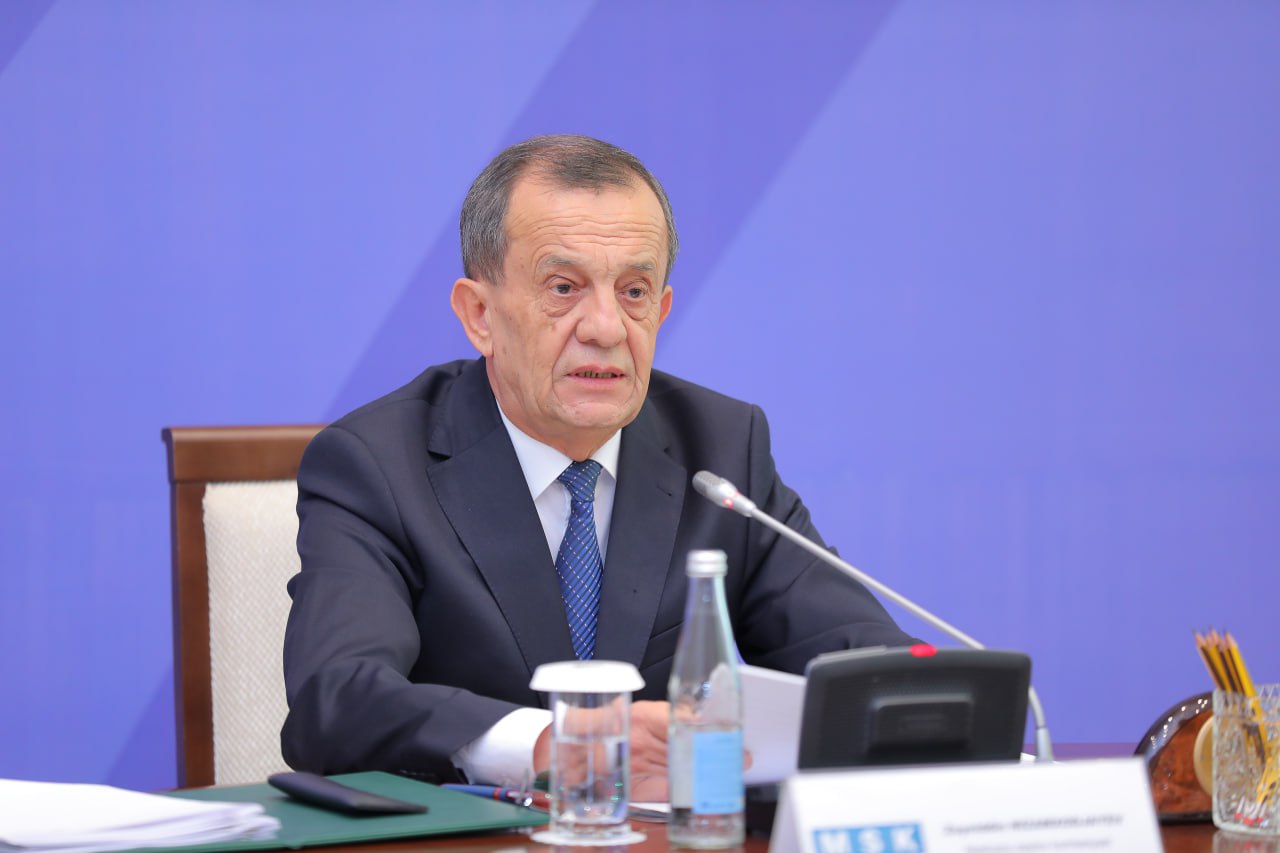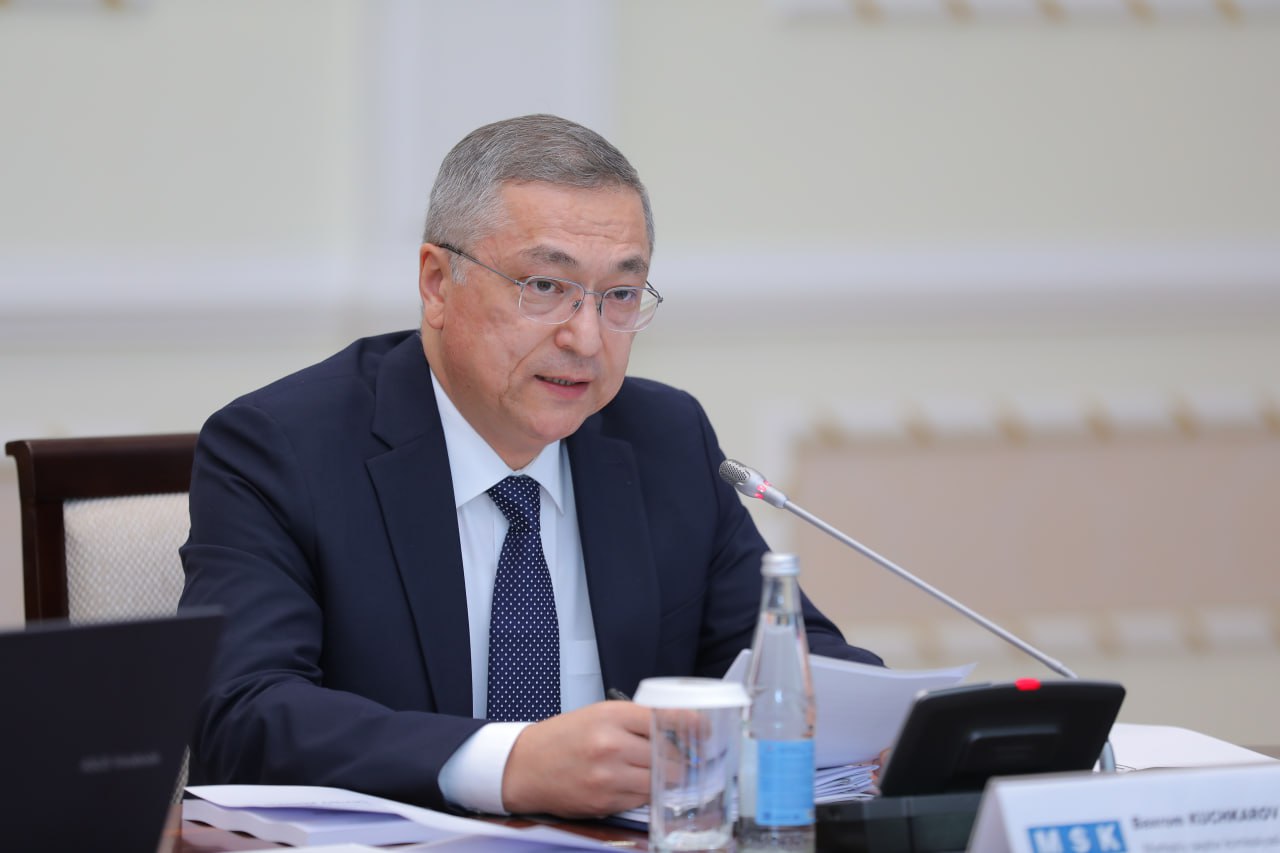- CEC
- Legislation
- Election commissions
- Elections and referendums
- International cooperation
- Press service

Today, July 26, the regular meeting and a number of other events of the Central Election Commission took place.
The main item on the agenda of the meeting was the conduct of this year's elections to the Legislative Chamber of the Oliy Majlis and to the Councils (Kengashes) of People's Deputies in full compliance with the Constitution and the laws and at a high organizational level.
In accordance with Article 128 of the Constitution, elections to the Legislative Chamber of the Oliy Majlis and to the Councils (Kengashes) of the People's Deputies are held in the year in which their term of office expires, namely on the first Sunday of the third decade of October.
In view of the expiry of the term of office of the deputies of the Oliy Majlis and the Councils (Kengashes) of People's Deputies in 2024, the Central Election Commission issued a Resolution to hold elections on October 27 and to start the election campaign from July 26 this year.
It should be noted that it is of particular importance that the forthcoming elections are taking place in a completely new social and political environment, as set out in the Constitution.
As noted at the meeting, the uniqueness of these elections is as follows:
For the first time in the history of Uzbekistan, elections to the Legislative Chamber of the Oliy Majlis are held on the basis of a mixed electoral system, i.e. plurality voting and proportional representation.

75 deputies will be elected directly according to a plurality voting system in which voters vote for specific individuals, while the remaining 75 will be elected according to a proportional representation system in which they vote for political parties.
Secondly, the activities of the election commissions at all levels and their interaction with the participants in the electoral processes were completely digitized. In this way, bureaucracy, excessive waste of time and unnecessary paperwork in the electoral process have been minimized
Thirdly, electoral legislation was completely improved in line with advanced democratic standards. In particular, a new system of election management bodies was introduced under the direction of the Central Election Commission. It was stipulated that at least 40 percent of the candidates nominated by the political parties must be women. In addition, it was determined that it is sufficient to receive the votes of a relative majority of the electorate to be elected as a member of parliament. Accordingly, a candidate is considered elected if he or she receives more votes than other candidates in the respective election district and therefore no second vote is required.
Fourthly, the elections take place against the backdrop of a significant strengthening of parliamentarianism and the powers of local representative bodies, which are enshrined in the updated Constitution. In particular, the absolute powers of the Legislative Chamber have been increased from the current 5 to 12 and those of the Senate from 12 to 18. Parliament's supervisory functions over the activities of the executive, judiciary, law enforcement agencies and special services have been expanded. The institution of administration of the khokims (governors) by local Councils (Kengashes) of People's Deputies was abolished. In order to strengthen the role of the representative bodies in addressing important issues of public life, 33 powers that were previously the responsibility of the khokims (governors) were transferred to the local councils.
At the meeting it was emphasized that the upcoming elections are an example of democratic statehood in our country, important for the realization of the constitutional rights of citizens to vote and be elected, to participate in the democratic formation of state bodies.
The elections will elect 150 deputies to the Legislative Chamber, 65 members of the Senate, 65 deputies to the Jokargy Kenes of the Republic of Karakalpakstan and deputies to the regional, Tashkent and 208 district (city) Councils (Kengashes). It is expected that about 30,000 candidates and about 90,000 of their proxies will actively participate in the election process, as well as more than 120,000 members of election commissions as organizers and more than 70,000 local and foreign (international) observers.
Considering the important role of elections in public life and in order to widely involve citizens in this process, the Central Election Commission has announced the elections for October 27 under the slogan “My Choice - My Prosperous Homeland”.
During the event, the “E-saylov” information system was presented as a technological innovation for conducting elections.

Around 60 types of interaction between election commissions and political parties, candidates, observers and the media will be handled completely electronically via the “E-saylov” information system.
This electronic system, which is integrated into other electronic platforms, enables electoral procedures to be carried out automatically without the influence of the human factor.
This system will form a large information base (big data) of about 400,000 participants in the electoral process, namely members of election commissions, candidates for parliamentary seats, observers. 32,000 participants in the electoral process will use this information system professionally. Communication with users will take place via 40 types of SMS notifications.
The “E-saylov” information system also offers citizens a number of facilities for obtaining election-related information. In particular, the information system makes it possible to obtain statistical information on voters and polling stations, to obtain information on candidates for deputies in all types of elections, to familiarize oneself with candidates for deputies and their biographical data through interactive maps.
As was noted at the meeting, the “E-saylov” information system takes elections to a whole new level in terms of technology and openness.
It should be emphasized that political parties have the right to nominate candidates for the Legislative Chamber and local Councils (Kengashes) in accordance with Article 37 of the Electoral Code.
In order to participate in the elections, political parties must be registered by the Ministry of Justice at least four months before the date of the announcement of the start of the election campaign and collect signatures from at least 40,000 voters supporting the party's participation in the elections.
At the Commission meeting, the timetable was approved, which ensures the gradual implementation of activities related to the preparation and conduct of the elections within the deadlines set out in the legislation. As stated at the meeting, the Central Election Commission, as an impartial and independent constitutional body, will take all measures to ensure that all activities related to the preparation and conduct of the upcoming elections are carried out in an open and transparent manner and in full compliance with national legislation and international electoral standards.
The Press Center of the Central Election Commission was also set up at the meeting.
Central Election Commission